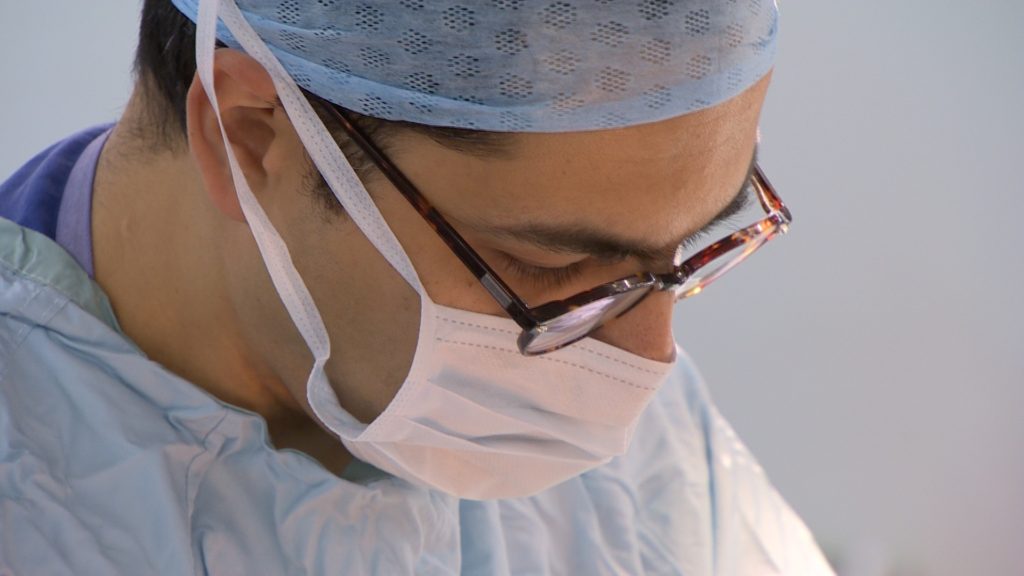wenty percent of women will have their womb removed. If you’ve been told you need a hysterectomy, how can you ensure you get the very best care?
Pain, problems, and pathology can mean that as many as one in five women will have a hysterectomy by the time they reach the age of sixty. But although it’s a common surgical procedure, too many women are often not given the facts and figures they need to make an informed choice about their operation.
Why the hysterectomy needs to be done, whether the ovaries and tubes need to be conserved and whether the operation should be performed as an open or minimally invasive procedure are all key concerns.
Many women remember their mothers, grandmas or aunts having hysterectomies in years gone by. They were often in hospital for many days, had a slow and often stormy recovery and may have taken weeks or months to get back to themselves. Fortunately, things have changed. Modern advances and specialist techniques have meant that the operation can now be carried out as a keyhole procedure. This allows women to make a rapid recovery, often going home the very same day and being left with small scars. It really has revolutionised the operation.
Unfortunately, rates of laparoscopic hysterectomies in the UK are still low compared to other countries. Many gynaecologists do not have the skills and experience to carry out the procedure.
The key questions
As with anything, knowledge is power, and in the lead up to your hysterectomy, it is important that you are asking your gynaecologist the right questions.
Why am I having a hysterectomy?
It sounds obvious but it’s not always clear. Ask your doctor to outline all the reasons for the operation and what will happen if you don’t have the operation. Make absolutely sure that you are not being offered the hysterectomy for the wrong reasons. One example is having a hysterectomy for severe endometriosis. Hysterectomy is rarely the answer for severe endometriosis.
Are there any other treatments available?
Removing the uterus is a big step. Many women see it as losing a part of themselves, giving up part of what makes them female. So, a hysterectomy shouldn’t be seen as an easy way out, it really should be the last resort.
Don’t be afraid of asking your doctor if there are alternative treatments available. The answer to this question will depend on the reason for your hysterectomy. If it has been suggested due to cancer, then removal of the womb may be necessary to treat the disease and potentially save your life.
However, if you have been suffering from heavy, painful periods, then hormonal treatments or an alternative procedure like Endometrial Ablation may provide some relief. Endometrial Ablation is a smaller operation in which the uterine lining is removed or destroyed. The womb is retained but the unpleasant symptoms may be resolved, so it can be a valid alternative to a hysterectomy for some women.
Will a hysterectomy cure my condition?
Simply removing the womb will not cure all problems. Specifically, it is important to remember that a hysterectomy is NOT a treatment for endometriosis. As a surgeon specialising in the treatment and excision of endometriosis, I have seen too many women who have been badly misinformed on this fact. Endometriosis grows throughout the pelvis and on other structures, so removing the uterus is not going to solve the problem.
Having said that, there are situations in which I would offer women with endometriosis a hysterectomy, for example, if you have a condition called adenomyosis or if there are other problems such as heavy bleeding as well as pain.
If a hysterectomy is the right operation for you, then your next questions should help make sure it is carried out in the best way possible.
Will my hysterectomy be done as a minimally invasive or open operation?
All the evidence shows that a hysterectomy done by a minimally invasive route is the best option. Hands down. The recovery is quicker, the hospital stay is shorter, the complications are fewer (in experienced hands) and you’ll be back working, driving and living life to the full much sooner.
Minimally invasive options include laparoscopic or vaginal hysterectomies. In experienced hands they don’t just mean smaller scars and a better cosmetic result, they also mean less time in hospital and less stress on your body.
Sadly, too often women are not given the choice of having a laparoscopic hysterectomy. The main reason an open hysterectomy is usually offered is that the surgeon you are being referred to is not familiar and practised at minimally invasive options. If that’s you, then exercise your right to choose and ask the next question. (There are situations in which an open hysterectomy is appropriate, such as cancer of the ovary or huge fibroids)
Why am I not having a minimally invasive operation?
If you’ve been offered an open hysterectomy, always ask your surgeon if it is possible to do the procedure laparoscopically or vaginally. If not, then the next question to ask is ‘why not?’. If you are not happy with the answer, then ask to see a gynaecologist with the right expertise and experience.
Will my fallopian tubes be removed at the same time as the hysterectomy?
It’s important to discuss removing your fallopian tubes at the same time as your hysterectomy with your doctor, even if the plan is to leave your ovaries behind. This is because we now have a greater understanding of ovarian cancer. It is now clear that a good percentage of ovarian cancers, particularly the most invasive ones actually originate in the fallopian tubes, so removing them could offer protection.
If done for the right reasons, getting a hysterectomy can be a very positive, empowering step. Without monthly pain and bleeding, you will be free to enjoy your life at stages of your menstrual cycle.
